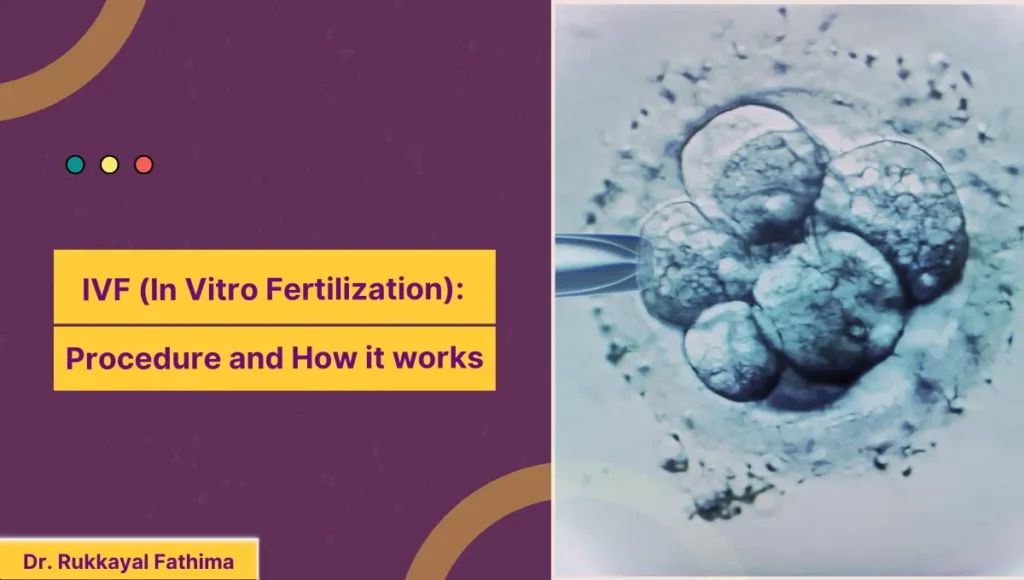In recent years, conceiving a child and becoming a parent is becoming more and more difficult. Lifestyle changes and health conditions restrict couples from having a child naturally. This is where ART (Assisted Reproductive Technology) comes in.
ART is a rapidly growing concept in fertility where the couple conceives and births a child through artificial methods. IVF is a type of assisted reproductive technique that helps couples have a child of their own.
What is IVF?
IVF (In Vitro Fertilisation) is one of the most commonly practised Assisted Reproductive Technologies (ART). in IVF, the sperm and eggs (oocytes) are collected from the male and female reproductive organs and fertilised in a laboratory under artificial conditions.
After the sperm fertilise the eggs, the embryo is transferred into the uterus for further development. The embryo then implants into the uterine wall, resulting in pregnancy.
Why is it done?
IVF is done for patients who have trouble conceiving on their own. Infertility can be caused when either or both partners have problems. IVF can also help couples who are past the age of 35 to 40.
IVF is generally suggested for couples who have been treated and failed in less-invasive methods such as ovulation induction (administering medication to increase egg production) and IUI (Intrauterine Insemination).
IVF can also be a primary treatment for couples with an existing health condition. Some of the health factors that can affect fertility are given below
- Damaged or blocked fallopian tubes.
- Endometriosis (a situation where the tissues lining the inner layer of the uterus grow outside the uterus).
- Ovulation disorders. Problems with ovulation (menstrual cycles) caused by PCOS (Polycystic Ovary Syndrome), obesity, or other hormonal changes.
- Uterine fibroids.
- Previous vasectomy or other surgeries.
- Azoospermia (low to no sperm in the ejaculate).
- Genetic diseases.
- Problems with sperm count, motility, and shape.
- Unexplained fertility.
What medications are used for IVF?
IVF is a complex process that involves the intake of several medications. They might be taken orally, injected, or placed in the vagina. The dosage and timing for these medications vary depending on the treatment plan and the patient’s health condition.
- Ovulation suppression: Patients will be administered oral contraceptives (birth control pills) to control the time of ovulation. This helps doctors time the ovulation process easily.
- Follicle Stimulating Hormone (FSH): This is administered every day for 14 days before egg retrieval. This hormone stimulates the ovaries to produce more mature eggs. The dosage of this hormone differs from person to person.
- Human chorionic Gonadotropin (hCG): This medication is usually given as a single shot to trigger the maturation of eggs and begin ovulation.
Process of IVF
IVF is a complex process that involves a series of procedures. The whole process can be broken down into the following steps.
Ovulation induction
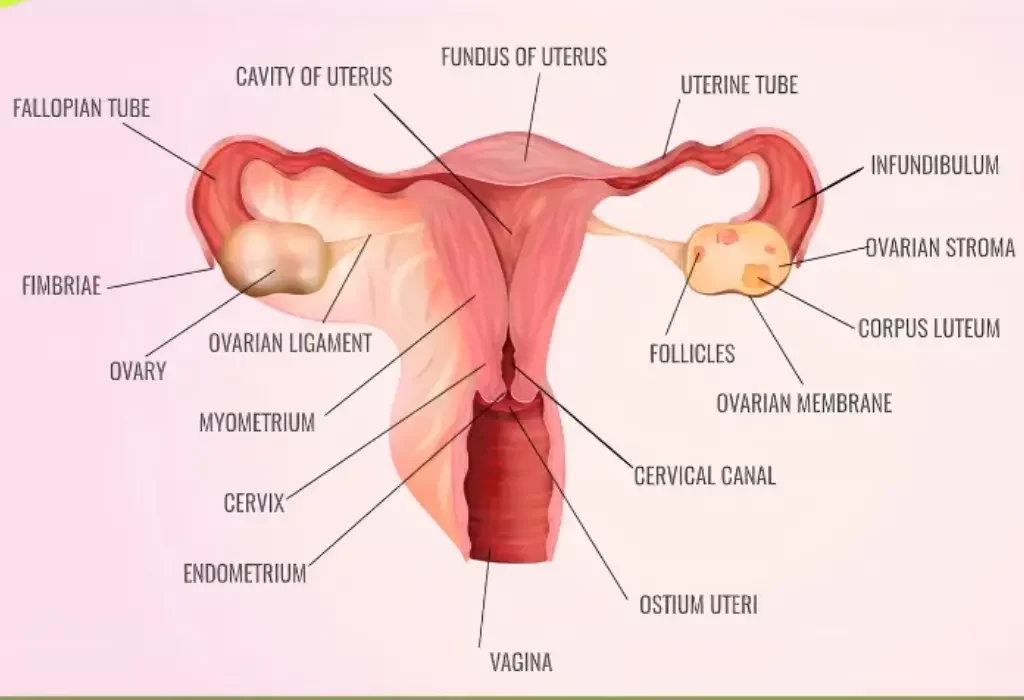
Thai step is done to produce more eggs through medication, promoting follicle growth and ovulation. In a natural cycle of egg development, i.e., the menstrual cycle, the ovaries produce a group of eggs to mature each month. Generally, only one egg will be mature enough for ovulation. The remaining eggs disintegrate.
During the IVF process, the female is given a series of hormonal injections that stimulate all the eggs in the group to mature simultaneously. This gives more eggs that can be used for fertilisation, and choose the embryo that has more chances of resulting in pregnancy.
Egg & Sperm retrieval
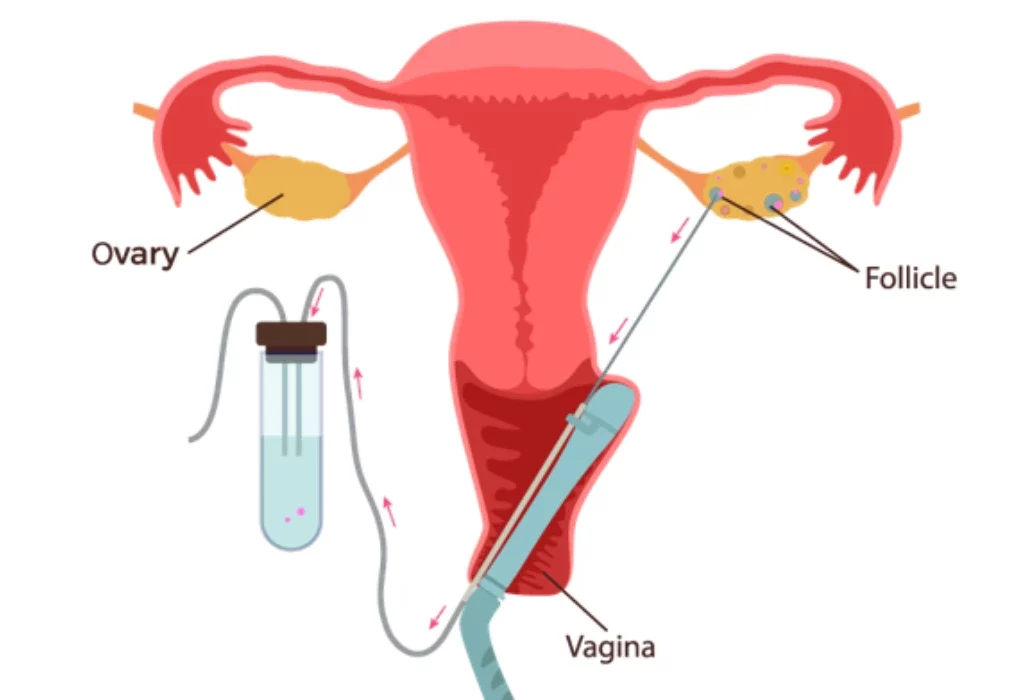
Once the eggs are mature enough to be collected, a thin needle is inserted through the wall of the vagina into the ovaries. The patients will be administered a mild anesthetic, so there is no worry about pain. IVF is not painful. Once the needle enters the ovary, a suction device connected to the needle will collect the mature eggs.
The sperm from the male partner is collected on the same day as the egg collection. The sperm is collected in a container provided by the lab. The lab conducts a semen analysis test to check sperm volume, sperm mobility, and quality.
Fertilisation & embryo culture

There are two ways fertilisation can be done. They are traditional IVF and ICSI (Intracytoplasmic Sperm Injection).
In traditional IVF, the mature eggs are placed among several sperm for fertilisation. If the sperm cannot fertilise the eggs on their own, ICSI, where a single, healthy sperm is injected into the egg’s cytoplasm, can be done to fertilise the eggs.
Once the eggs are fertilised, they are monitored for five to six days for development. On average, about 50-60% of the embryos develop into the blastocyst stage.
Embryo transfer
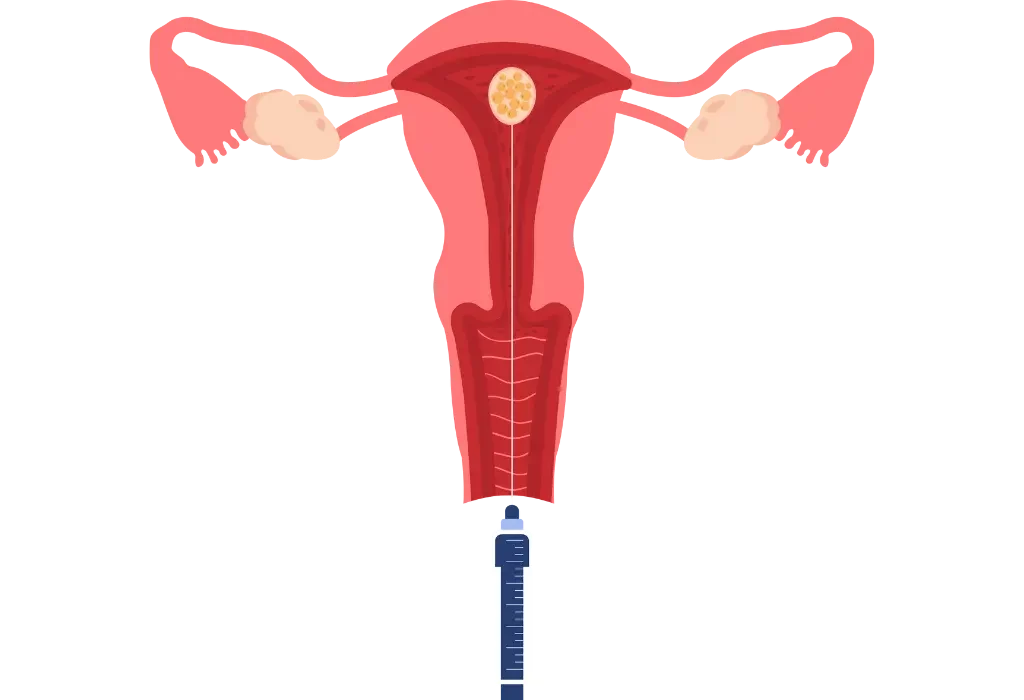
Of all the embryos that have developed to the blastocyst stage, the one with the higher chances of leading to pregnancy will be selected for embryo transfer. The remaining eggs can be frozen for future use or if the transferred embryo fails to implant in the uterus.
There are two types of embryo transfer.
- Fresh embryo transfer (embryos are transferred into the uterus within five days of egg retrieval)
- Frozen embryo transfer (developed embryos are frozen and stored for future use)
The patient can choose whether they want fresh or frozen embryo transfer. Studies have proved that frozen embryo transfer has a 15-20% increase in success rate than fresh embryo transfer. So most fertility centres prefer frozen embryo transfer.
Risks involved with In Vitro Fertilization
Given below are some of the risks involved in IVF treatments.
- Complications with egg retrieval: Any complications with the egg retrieval process may lead to bleeding, infections, and damage to the reproductive organs.
- Multiple births: The chance for multiple pregnancies increases in assisted reproductive technologies. This may lead to premature labour and low birth weight of the newborn.
- Miscarriage: Even though the rate of miscarriages in IVF is the same as that of unassisted pregnancies, there are more chances of miscarriage with the increase in maternal age.
- Premature delivery: Women may be at slightly more risk of having a premature delivery or having babies with lower birth weight.
- Ectopic pregnancy: This is the condition where the fertilised embryos implant themselves outside the uterus, e.g., the fallopian tubes.
- Ovarian Hyperstimulation Syndrome (OHSS): OHSS is a rare condition that causes nausea, vomiting, abdominal pain, diarrhoea, bloating, rapid weight gain, and the inability to urinate in women.
What are the side effects of IVF?
Women who undergo IVF treatments can experience some side effects before and after the completion of the process.
Side effects of ovulation induction:
- Abdominal pain
- Nausea and vomiting
- Headaches
- Hot flashes
- Enlargement of ovaries
- Bruising or infections from IVF injections
- Pronounced and unusual fatigue
Side effects after embryo transfer:
- Bloating
- Abdominal pain
- Constipation
- Cramping
- Tender breasts (due to high estrogen levels)
- Rapid weight gain
- Low blood pressure
IVF involves complex procedures that affect a person’s physical and emotional health. Struggles with infertility and IVF failures can leave people depressed and overwhelmed. It is better to talk with a fertility doctor to get enough support.
Who is a candidate for IVF?
IVF is a better treatment option for couples who have fertility issues. Male partners who have insufficient sperm count, motility, and shape abnormalities and female partners who have blocked or damaged fallopian tubes can opt for IVF treatments.
Generally, an individual or a couple is considered to be infertile when they can’t get pregnant after a year of regular, unprotected intercourse (for people under age 35). Those over 35 years, they can consult a fertility doctor if they can’t conceive after 6 months of regular, unprotected intercourse.
IVF treatments can also help women with Endometriosis, a condition where the tissue lining the inner layer of the uterus grows outside of it. In cases of male infertility, patients can opt for ICSU (Intracytoplasmic Sperm Injection), where a single, healthy sperm is injected directly into the egg’s cytoplasm.
Success Rate of IVF treatments
The chances of an IVF treatment resulting in pregnancy depend upon various factors. Given below are some of them.
Age
The younger the couple is, the higher the chances of having a successful IVF treatment. This is because the quality of the sperm and egg decreases as a person’s age increases.
The average success rate of IVF treatments in India is between 75-90%. Although it is a bit complicated to calculate, here is an approximate estimation of the percentage of successful IVF treatments based on a woman’s age. leo.
Women younger than 35 – 80-95%
Ovarian reservere
The higher the number of mature eggs produced, the higher the chances of fertilisation and success in IVF. The number and quality of the eggs produced can be influenced by the female’s age and other health conditions.
Lifestyle
The less healthy a person’s lifestyle habits are, the fewer chances they have to succeed in IVF treatments. This is because an unhealthy lifestyle can lead to issues like obesity, being underweight, or other hormonal changes. This can affect the success rate of IVF.
IVF vs IUI
IUI (Intrauterine Insemination) differs from IVF (In Vitro fertilisation). IUI is a less-invasive and less-expensive method of ART (Assisted Reproductive Technology), where fertilisation occurs in the female reproductive system. IUI has a comparatively lower success rate than IVF. That is why it is a must to understand the difference between IVF and IUI.
IUI (Intrauterine Insemination)

Intrauterine Insemination (IUI), also called artificial insemination, is where the sperm is injected directly into the uterus for fertilisation. During IUI, the male’s sperm is collected and analysed to separate high-quality sperm from low-quality sperm. Once the best sperm are isolated, women are given medication to induce the production of eggs.
The collected sperm is inserted into the female uterus with a catheter (a thin tube) to swim and fertilise the eggs. This method increases the chances of pregnancy when the partners don’t have major fertility issues.
IVF (In Vitro Fertilization)
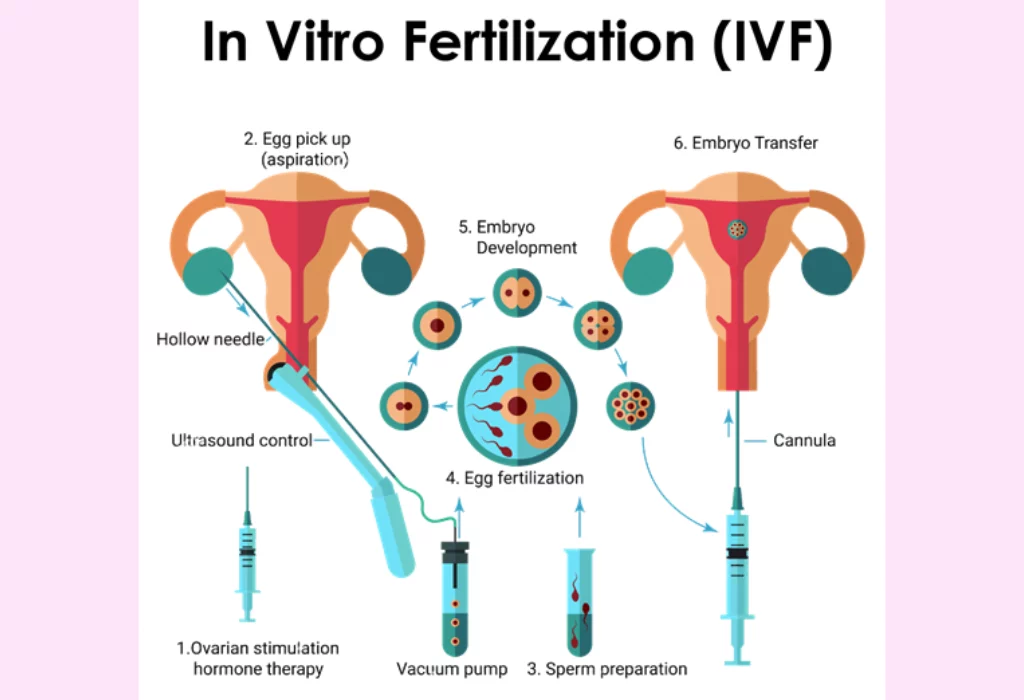
Regarding IVF, the eggs and sperm are collected and fertilised outside the uterus under artificial means (in a lab dish). The fertilised eggs are then placed in the uterus for further development.
Difference between ICSI and IVF
ICSI and IVF are two common fertility treatments used to assist couples who struggle with conceiving. IVF involves mixing sperm and eggs in a laboratory dish to facilitate fertilization, while ICSI injects a single sperm directly into an egg.
ICSI is typically used when male infertility is a concern, while IVF is a more general option for couples with various fertility issues. The main difference between IVF and ICSI is the method of fertilization.
Conclusion
If you have been struggling with infertility for a long time and are unable to conceive a child of your own, you can definitely choose IVF treatments to increase your chances of pregnancy with the help of an IVF doctor. The process of IVF may be complex and tedious, but it will all be worth it when you hold your child in your arms.
Frequently asked questions
IVF is an expensive process. The average cost of IVF treatments in India varies from INR 1,25,000 to INR 1,80,000. This cost does not involve the medication, testing, or additional procedures done during the treatments.
The total expense of IVF treatments can go up to several lakhs without the guarantee of pregnancy. In India, most insurance companies do not provide insurance coverage for IVF treatments.
However, some insurance companies are becoming more inclusive of IVF treatments in their health insurance policies. You may need to consult the insurance company to learn about their health insurance policies.
Due to the increasing number of successful IVF treatments in India, the demand for these treatments has also experienced a notable increase. According to research, more than 8 million babies are born annually through IVF, and around 2 million babies are born through ICSI in India.
IVF pregnancies are not considered high-risk unless the parent has an existing health condition or other factors that can weaken their body. For example, advanced maternal age, high blood pressure or multiple births can be possible risk factors for the parent.
You can do a pregnancy test about 9 to 14 days after embryo transfer. You can visit your fertility doctor and do a checkup to see if the IVF treatment was a success.
When it coomes to success in IVF treatments, the younger the better. You have a higher chance of pregnancy through IVF if you do it before you reach the age of 35. The success rate decreases as your age increases.

